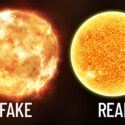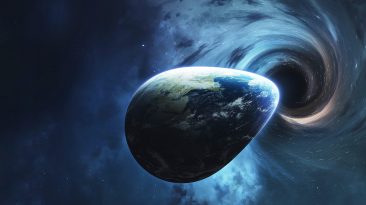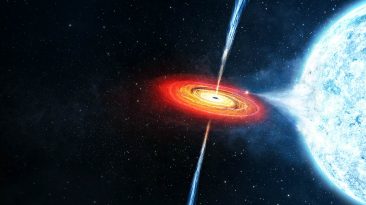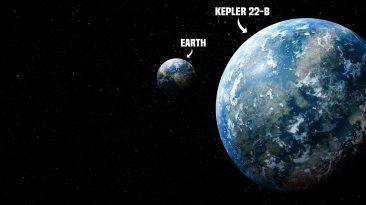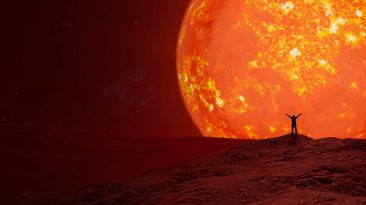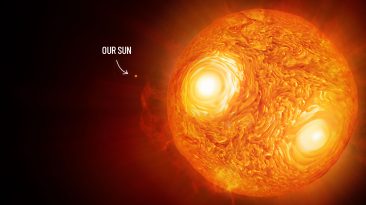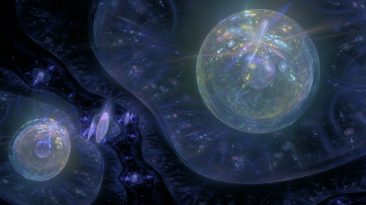Imagine a world of endless possibilities. A world where every decision you make splits reality in half. And then the next decision splits it into another half. And then, again and again, creating an infinite number of parallel universes. How could this be possible? In what ways would your life be different in other realities? And how could these universes ever intersect?
Thanks to the parallel worlds of the Marvel Cinematic Universe, you could already be familiar with the idea of multiverses. Many theories suggest our Universe isn’t the only one. There could be many, many more. Possibly an infinite number. And these universes could all be very different. Some could mirror our reality. Some could have intelligent civilizations other than us. And many could have radically different laws of physics.
So make sure you plant your feet firmly. You could be about to discover a universe with no gravity at all. Ok, I’m sure you have a lot of questions. That makes sense. You just learned that our Universe could be one of billions. Or more. But let’s start with a question that concerns the most important person here. You. Would you exist in any of these other universes?
Well, not to bring you down. But according to astrophysicist Ethan Siegel, the answer is likely no. In the formation of each universe, there are a mind-blowing number of possibilities of how particles could interact. For you to exist in multiple universes, the seven octillion atoms that make up your body would need to come together in the exact right combination. Multiple times.
It’s like the ultimate version of the infinite monkey theorem. The idea is that with an infinite amount of time, a monkey randomly typing could eventually write a replica of Shakespeare’s Hamlet.
But that would be what it takes to make one single replica of you. Even if that did happen, the chances that anything else is the same in this universe are very, very small. That would be a lot of Hamlets.
You’d likely not have the same family, the same Earth or the same Solar System. But with the potential that an infinite number of universes exist, theoretically, there could be two or more of you out there leading wildly different lives. There could be a universe where another outcome would be possible for every decision you make. It wouldn’t matter how big or small. In one world, you’d turn on a light. In another, you’d turn it off.
So there could be a universe where you took that job overseas. One where you stayed together with an ex-partner. And yes, even one where you died in that car crash. Or even an infinite number of car crashes. Tragic, I know. But possible. Also, dinosaurs could still roam the Earth and be our supreme overlords. Just saying it’s all possible.
But if these different universes exist, would you be able to visit them? Could you ever contact the infinite other versions of yourself? This depends on which type of multiverse theory you’d subscribe to. According to one theory, when the Big Bang created our Universe, it could have created a universe on the opposite side of the timeline.
It would be built out of identical versions of every particle in our Universe. It could mirror life in every way. But even if there were other universes, you wouldn’t be able to just travel to the edge of our own and cross over to the other side. That universe would be moving away from ours at the speed of light. So you’d need to be moving at the speed of light too.
So unless you could figure out how to perceive and travel through higher dimensions, there’s a really, really small chance you’d be able to meet your alternate self. But take solace in the possibility that there could be a dream reality out there somewhere, and you could be living in it. Well, not you exactly. But a version of you living a version of your best life.
Then again, who knows if any of these theories are real. This could be our one Universe with only one Earth and one you. Might as well make the best of it. But then again, maybe one of these days, another universe could crash into ours.
Sources
- “What Is Multiverse Theory?”. Paul Sutter. 2021. livescience.com.
- “This Is Why The Multiverse Must Exist”. Ethan Siegel. 2019. forbes.com.
- “Parallel Universes: Theories & Evidence”. Vicky Stein , Daisy Dobrijevic. 2021. space.com.
- “Is There Another ‘You’ Out There In A Parallel Universe?”. Ethan Siegel. 2016. forbes.com.
- “Physicists Weigh In: Could We Ever Travel to a Parallel Universe?” 2022. futurism.com.


